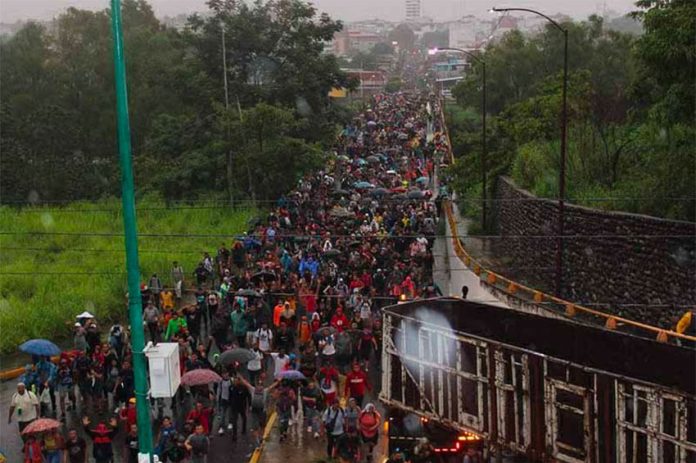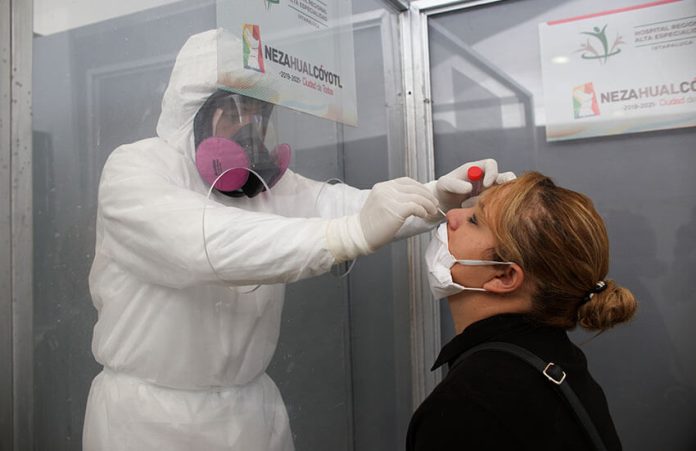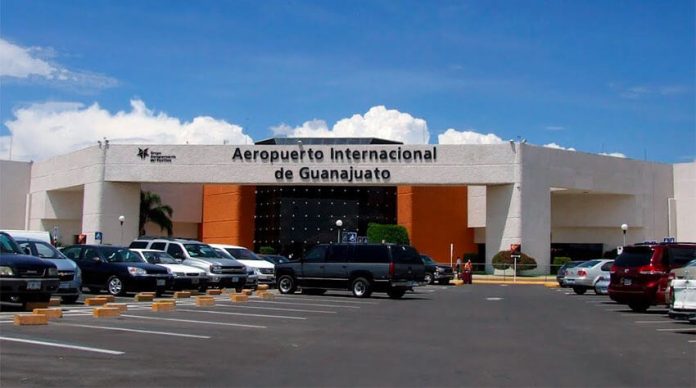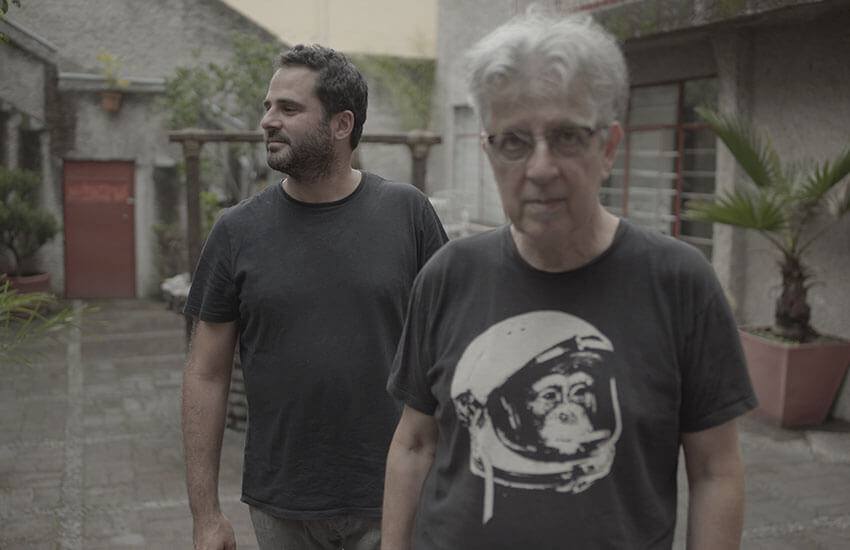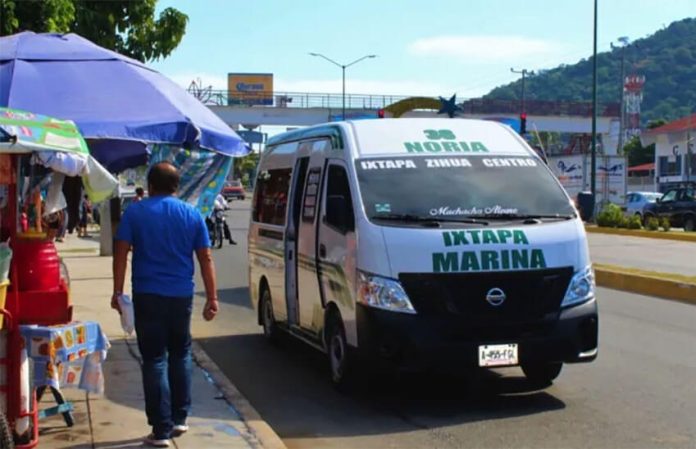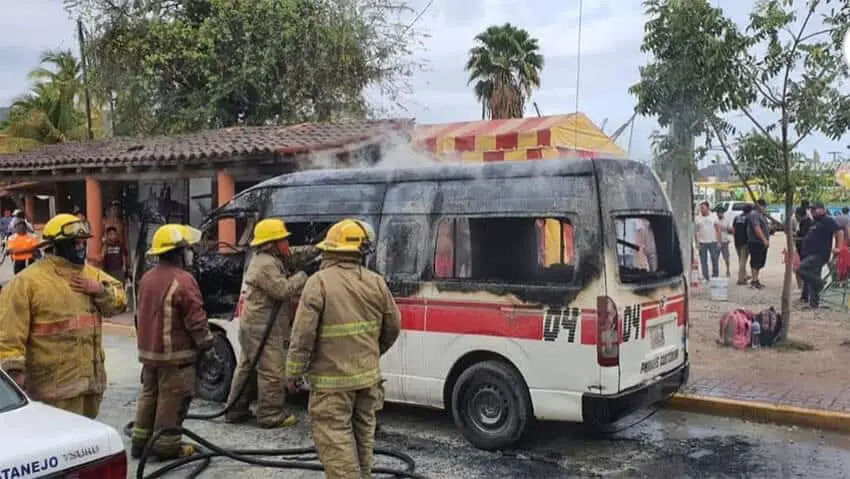Members of the ruling Morena party entered into an “electoral narco-pact” with the Sinaloa Cartel last year, according to well known investigative journalist Anabel Hernández.
Writing for the German state-owned news outlet Deutsche Welle, Hernández said she had information that Morena members made a pact with Iván Archivaldo Guzmán Salazar, one of the sons of convicted drug lord and former Sinaloa Cartel leader Joaquín “El Chapo” Guzmán Loera.
The pact was reportedly made in the lead-up to the municipal and state elections in Sinaloa in June of last year. Governor Rubén Rocha Moya won the governorship for Morena, easily beating PAN-PRI-PRD candidate Mario Zamora, and Morena triumphed in the majority of Sinaloa’s 18 municipalities.
Hernández, who has written extensively about Mexican criminal organizations and their links to governments, political parties and politicians including presidents, said “direct sources that know the events first hand” asserted that Morena made a deal with Iván Guzmán, who – along with his brothers, “Los Chapitos,” and uncles – controls a faction of the Sinaloa Cartel, one of Mexico’s most powerful criminal organizations.
She wrote that “people who have been part of the close team” of President López Obrador corroborated the existence of a narco-pact. According to those people, the president is neither unaware of nor disapproves of the agreement, Hernández wrote.
The publication of the journalist’s claim last Friday came a day after veteran leftist politician Porfirio Muñoz Ledo accused President López Obrador of colluding with narcos, a charge he flatly denied.
Hernández said the purpose of the pact was for El Chapo’s sons and brothers to give their “blessing” to Morena along with that of Ismael Zambada García – “El Mayo” – the “maximum leader” of the Sinaloa Cartel. The deal ensured that Los Chapitos and their uncles would help Rocha win the governor’s office and support the election of Morena candidates to other positions, she wrote.
“In order for El Chapo’s family to operate in the election, key meetings were held with morenistas,” Hernández wrote referring to Morena party operatives including former interior minister Ricardo Peralta.
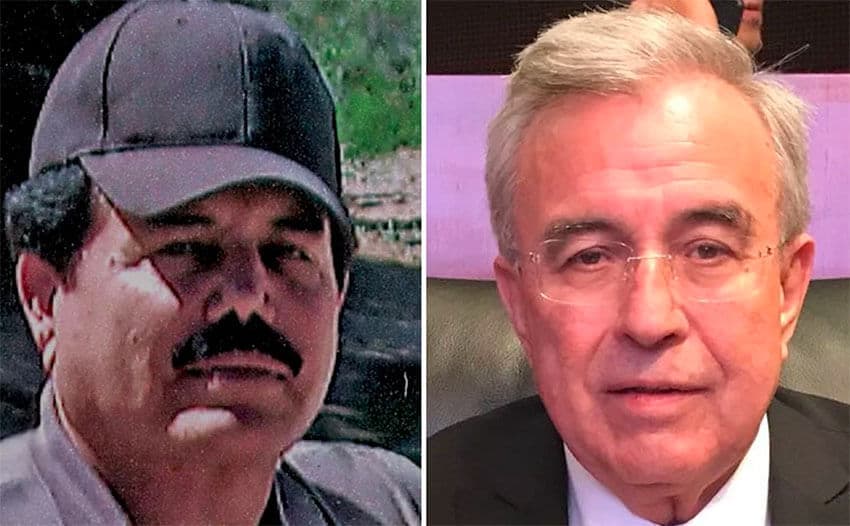
She said at least two meetings with Iván Guzmán took place in Culiacán and at least one with “El Guano” and “El Mudo” – brothers of El Chapo – were held in the community of La Tuna in the municipality of Badiraguato at the home of Consuelo Loera, Joaquín Guzmán’s mother, “who AMLO personally greeted in Badiraguato, Sinaloa, in 2020, during the the worst moments of the COVID-19 pandemic.”
At one Culiacán meeting, El Chapito, as Iván Guzmán is known, “with a pistol on his waistband and protected by a large group of armed people,” gave instructions for videos in support of Rubén Rocha to be filmed and disseminated on social media, Hernández wrote.
Members of famous music groups known for singing narcocorridos, or narco-ballads, and “with influence among the population” appeared in the videos, the journalist wrote. “’The Rocha Moya musicians’ were part of the propaganda plan. In that meeting, Iván Guzmán’s people had already received promotional Rocha Moya campaign t-shirts.”
“… In April 2021, Rocha Moya himself filmed a video … thanking the musicians for the support of his campaign.”
Hernández said that other Morena candidates, such as current Badiraguato Mayor José Paz López Elenes, also used narcocorridos in their campaign advertising.
She wrote that El Chapito – one of four brothers for whom the United States has announced rewards of up to US $5 million each for information leading to their arrest – also “ordered narco-electoral actions,” explaining that “he coordinated violent operations in Badiraguato against the PRI mayoral candidate … in order to favor … López Elenes.”
“… Iván also mobilized people to promote the vote and hand out gifts to the electorate, and with intimidation counteracted … similar operations that other opposing candidates were carrying out,” Hernández added.
In Consuelo Loera’s home, Aureliano and Miguel Angel Guzmán Loera – El Guano and El Mudo – met with López Elenes and other Morena “electoral operators,” the journalist said, adding that the same house hosted one of the then-mayoral candidate’s campaign events. “… At the time of the pact with El Chapo’s family, the delegate sent to Sinaloa by Morena for the electoral process was the then [federal] senator Américo Villarreal,” Hernández wrote.

Villarreal, who won the election for governor of Tamaulipas for Morena last Sunday, had knowledge of the pact with the Sinaloa Cartel and agreed with it, she wrote, adding that he is a personal friend of Governor Rocha. Hernández said that Los Chapitos and their uncles agreed to provide electoral support for Morena candidates in Sinaloa in exchange for the ruling party – which will soon govern 20 of Mexico’s 32 federal entities – agreeing not to go after them, including via arrest warrants issued for extradition purposes.
Ovidio Guzmán López, one of Los Chapitos, was released shortly after his 2019 arrest in Culiacán triggered a wave of cartel attacks that terrorized residents of the northern city. López Obrador said he personally ordered the release, asserting that more than 200 innocent people would have been killed had he not taken the decision. He said last month that his government looks after criminals by avoiding armed confrontations with them.
Hernández wrote that people with knowledge of the “electoral narco-pact” told her that the “successful model” used in Sinaloa at last year’s elections was also used in at least three states where citizens elected new governors last Sunday. “Direct sources” told the journalist that the Sinaloa Cartel supported the Morena party in Durango, Tamaulipas and Quintana Roo. Morena candidates won in Tamaulipas and Quintana Roo, but the PAN-PRI-PRD contender triumphed in Durango.
Hernández noted that Quintana Roo is a “key point” for the trafficking of drugs from South America and that the Sinaloa Cartel had criminal control of the state for many years before other cartels, including the Jalisco New Generation Cartel, caused a fracturing of that hegemony.
“Recovering it would be an advantage in the international drug trafficking business,” she wrote. Former Benito Juárez (Cancún) mayor Mara Lezama won the governorship of the Caribbean coast state.
Tamaulipas, Hernández wrote, is a state where the Sinaloa Cartel has never had a stronghold. “For 20 years it has fought to displace the Gulf Cartel and then its armed wing, Los Zetas, in a bloody war. But, despite military and police help from the governments of Vicente Fox and Felipe Calderón, it hasn’t achieved it because local governments have historically supported the Gulf Cartel,” she wrote.
If the Sinaloa Cartel were to gain control of Tamaulipas via its apparent pact with incoming governor Américo Villarreal, it would – for the first time in its criminal history – control the four most important northern border states for the trafficking of drugs to the United States, Hernández wrote, noting that it already holds sway in Baja California, Sonora and Chihuahua.
The journalist, who has previously exposed links between narcos and the three most recent former presidents, contended that AMLO and Morena are also in cahoots with other criminal organizations, including those involved in extortion and fuel theft – a crime the federal government has significantly combatted.
In exchange for “not combatting criminal organizations such as the Sinaloa Cartel,” Hernández wrote, the president and Morena demand “financial and operational help to increase their political hegemony in the country,” a claim similar to that made by Muñoz Ledo, a Morena lawmaker until last year. “At least that’s what the model that operated in Sinaloa shows,” she wrote.
Hernández charged that the establishment of pacts between parties in power and organized crime is a “cyclical” problem in Mexico that appears “sexenio after sexenio,” or from one six-year government to the next. Meanwhile, “tens of thousands of people will continue disappearing in Mexico [and] tens of thousands will continue being murdered, extorted, kidnapped, exploited and trafficked,” she wrote.
“Those who make agreements with organized crime to obtain power, handing over citizens like cattle to the slaughter, cannot be called a political party or government, not before or now,” Hernández added.
Her claims about Morena were rejected by the party’s general secretary, Senator Citlalli Hernández, who claimed that Hernández was guilty of writing “gossip without rigor.” The senator also claimed that the journalist has built a career and “certain credibility” only to lend that credibility to the “highest bidder.”
“The role of Anabel Hernández is really sad and disappointing,” she said.
With reports from Deutsche Welle and Infobae

